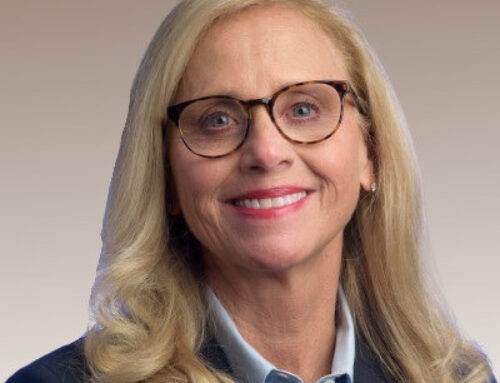Commercial Appeal: Memphis officials censor city credit card records
The Commercial Appeal reported today that the city of Memphis denied full access to statements from government-issued credit cards, saying the personal purchases made by government officials on the cards are not disclosable under the Tennessee Public Records Act. Under the credit card program, now discontinued, each government official was responsible for paying his own card, and had to submit separately for reimbursement when the purchases were for government. While the city says the employees paid the bill for their personal purchases, the Commercial Appeal so far has been unable to determine just how much in personal purchasing went on.
TCOG is quoted in the story, and the Commercial Appeal gave permission to our organization to publish their story on our website. Following is the story on credit card records, written by Daniel Connolly:
The credit card reports look like someone went through them with Wite-Out. Blank spots cover all dollar amounts and descriptions of purchases. Among the few phrases left unaltered are the name of City Council member Wanda Halbert and the words “City of Memphis.”
The Memphis city government censored the records about a former purchasing program that extended credit to a small number of employees and elected officials to buy anything they wanted, even if it had nothing to do with government business.
The city finance director says 15 to 25 people were taking part in the American Express credit card program when it was discontinued this summer. He says that they were supposed to pay back the personal expenses themselves, that they did so, and that the city didn’t lose money.
Two national experts said it’s unusual for a government to allow employees to use credit cards for both official and personal payments. The head of a state open government watchdog group raised concerns about secrecy and risk to city finances.
In response to information requests from The Commercial Appeal, the city attorney’s office has so far released just two sets of American Express card records. Records from City Council member Edmund Ford Jr.’s card showed travel expenses, with descriptions of all purchases visible.
By contrast, six months of Halbert’s American Express credit card reports show little but white space.
“The individual card holders were entitled under the open records law to redact any personal transactions,” deputy city attorney Regina Morrison Newman wrote in an email. “Once they did so, our Public Records office supplied you what remained on each document/statement.”
She pointed to language in the state Open Records Act which defines a public record as any document or recording “made or received pursuant to law or ordinance or in connection with the transaction of official business …”
She wrote, “The personal transactions on the credit cards do not fall under this definition thus are not public records.” She added that a state-level open records office agreed with that interpretation.
Halbert said the card was hers, not the government’s. “Any card I have is in my Social Security number, even if they are corporate programs. If I don’t pay my bill, it is on my personal credit.”
Asked if the city attorney’s office had asked her to alter the records, Halbert said, “You have to ask them that. They can just tell you what they told everybody. I don’t have any comments about my personal Social Security number.”
Experts on government finance say credit cards give workers the flexibility to make small purchases without cumbersome red tape, but that governments must control credit cards carefully because they increase the risk of fraud and abuse.
The office of Mayor A C Wharton referred questions about the city’s American Express credit card program to finance director Brian Collins.
Collins said the American Express program began years ago, but he didn’t know exactly when, and that it appeared to be a holdover from an old practice of letting workers make both personal and business purchases on corporate cards.
He said that when he worked as a new lawyer in Chicago in the late ’70s and early ’80s, his law firm issued him such a card, adding that he believed the practice was widespread at the time.
He said the city of Memphis’ combined credit limit was $50,000 for the pool of 15 to 25 workers. Individual cardholders had smaller limits, but he didn’t have the amounts.
He said the bills went to the officials, not the city, and the cardholders had to pay them out of pocket. They could provide receipts and ask the government to pay them back for items related to city business, but the government wouldn’t reimburse them for personal items.
“Now if an employee charged personal things on their credit card and then did not pay those, and AmEx sued us for the difference, then of course we would get involved. But that would be the loss. And that’s never happened,” Collins said.
Collins said he recommended the city shut down the program in July. “When I heard about it, I just didn’t think we needed it anymore,” he said. The city also runs a separate, more restrictive purchasing card program.
The American Express credit card program allowed employees to use the borrowing power of the government to make personal purchases, said Deborah Fisher of the Tennessee Coalition for Open Government, an association of citizens, media and good-government groups.
“If the citizens of Memphis knew how much government employees were charging in personal purchases on government credit cards, maybe they would have ended the program years earlier. It’s a good reason for not trying to keep information like this secret.”
A city manual dated July 15, 2010, contains language that suggests that the cards were primarily meant for travel expenses.
Ford’s card records show hotel, gas and other travel expenses for three trips to Nashville and one to Chattanooga in the first six months of the year. “All of that was based on Tennessee Municipal League business,” said Ford, who serves as alternate director for one of the organization’s districts. The charges totaled $1,400. Ford said he paid off his charges on time, and in some cases has chosen to declare them on his taxes rather than ask the city for reimbursement.
The Chicago-based Government Finance Officers Association has issued recommendations for use of government purchasing cards. The guidelines note the potential for abuse and tell governments to put strict controls in place, including audits and limits on the amount and number of transactions.
Organization staffer Rob Roque said he’s helped about 100 governments select financial accounting software, which frequently includes purchasing cards, and he said he’s never encountered a government that allows employees to make personal transactions on official credit cards.
Told that Memphis allowed it, he said, “Wow,” and laughed. “OK. I personally would not want to mix those things up.”
Many details about the Memphis government’s American Express credit card program remained unclear Friday, including the full list of people who had cards.
Staff reporter Maria Ines Zamudio contributed to this story.



